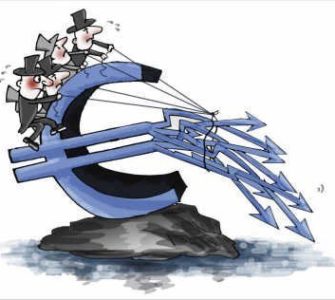The expulsion of Russia from SWIFT is seen as an extreme sanction to punish Putin for his military action against Ukraine. Some Western leaders have previously been reluctant to take such action, calling it a “financial nuclear bomb”.
- What is SWIFT?
SWIFT is the Society for Worldwide Interbank Financial Telecommunication and can be thought of as the Gmail of the global banking industry, with its messaging platform, products and services connecting over 11,000 financial institutions and corporate users in more than 200 countries and territories. SWIFT is a global interbank cooperation organization founded in 1973 and headquartered in Belgium. - Which Russian institutions have been kicked out of SWIFT?
Those expelled from SWIFT include Federal Savings Bank, Foreign Trade Bank, Otkritie, Novikom and Sovcom, five banks that have been subject to other sanctions. Federal Reserve Bank and Foreign Trade Bank are two of the most important financial institutions in Russia, together owning about half of Russia’s national banking assets. According to U.S. Treasury data, the Federal Reserve Savings Bank has the largest share of total deposits in Russia and is the main lender to the Russian economy. - Why are some countries reluctant to exclude Russia from SWIFT?
Another reason is that Western officials fear that expulsion from SWIFT will encourage other countries to develop alternative systems. A third concern is the fear of collateral damage. Kicking Russia out of SWIFT could lead to payment defaults and huge overdrafts within the international banking system. European countries pay Russia through SWIFT for the purchase of natural gas, which is needed in Europe to keep homes and power plants heated, and expelling Russia from SWIFT could affect the supply of natural gas during the winter heating season, further increasing the cost of living for European residents. - How secure is the SWIFT system?
There have been a number of attempts to rob financial institutions through false information on SWIFT, some of which have been successful. The most famous was the Bangladesh central bank heist in 2016, when hackers broke into SWIFT and tricked the New York Fed into transferring money, causing the Bangladesh central bank to lose $81 million. SWIFT stressed that its network had not been compromised, but the institution has since strengthened security in the wider industry through mandatory and advisory controls for member institutions. - Who regulates SWIFT?
Since it does not hold deposits, SWIFT is not regulated like a bank. It is supervised by the Belgian central bank as well as by representatives of the Federal Reserve, the Bank of England, the European Central Bank, the Bank of Japan and other major central banks. In general, SWIFT only cuts off access when the EU adopts sanctions against a specific entity or country.






